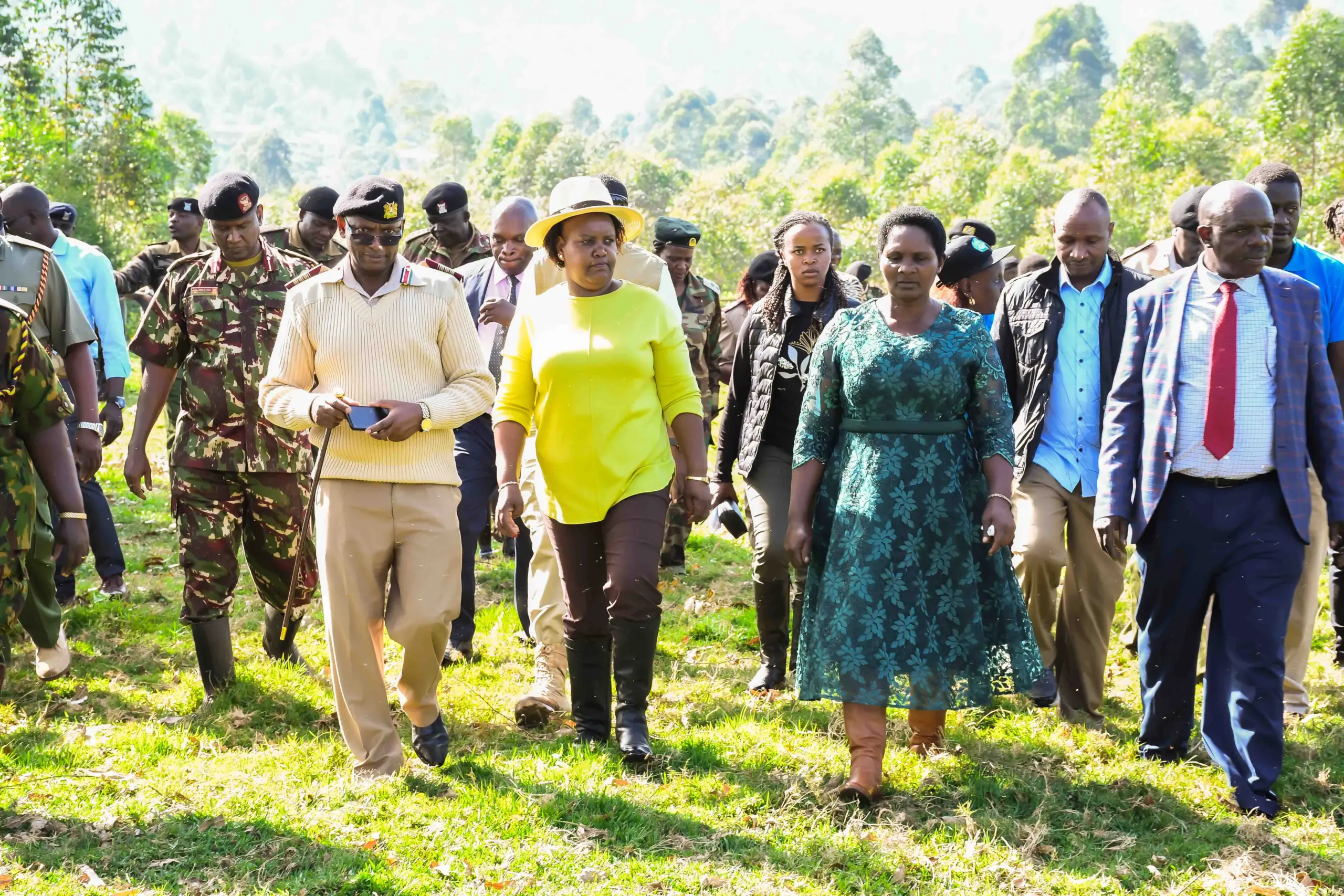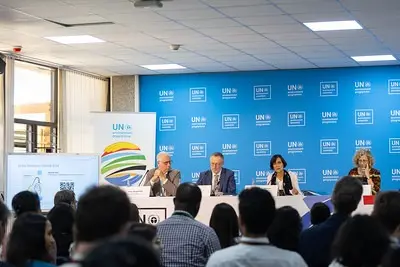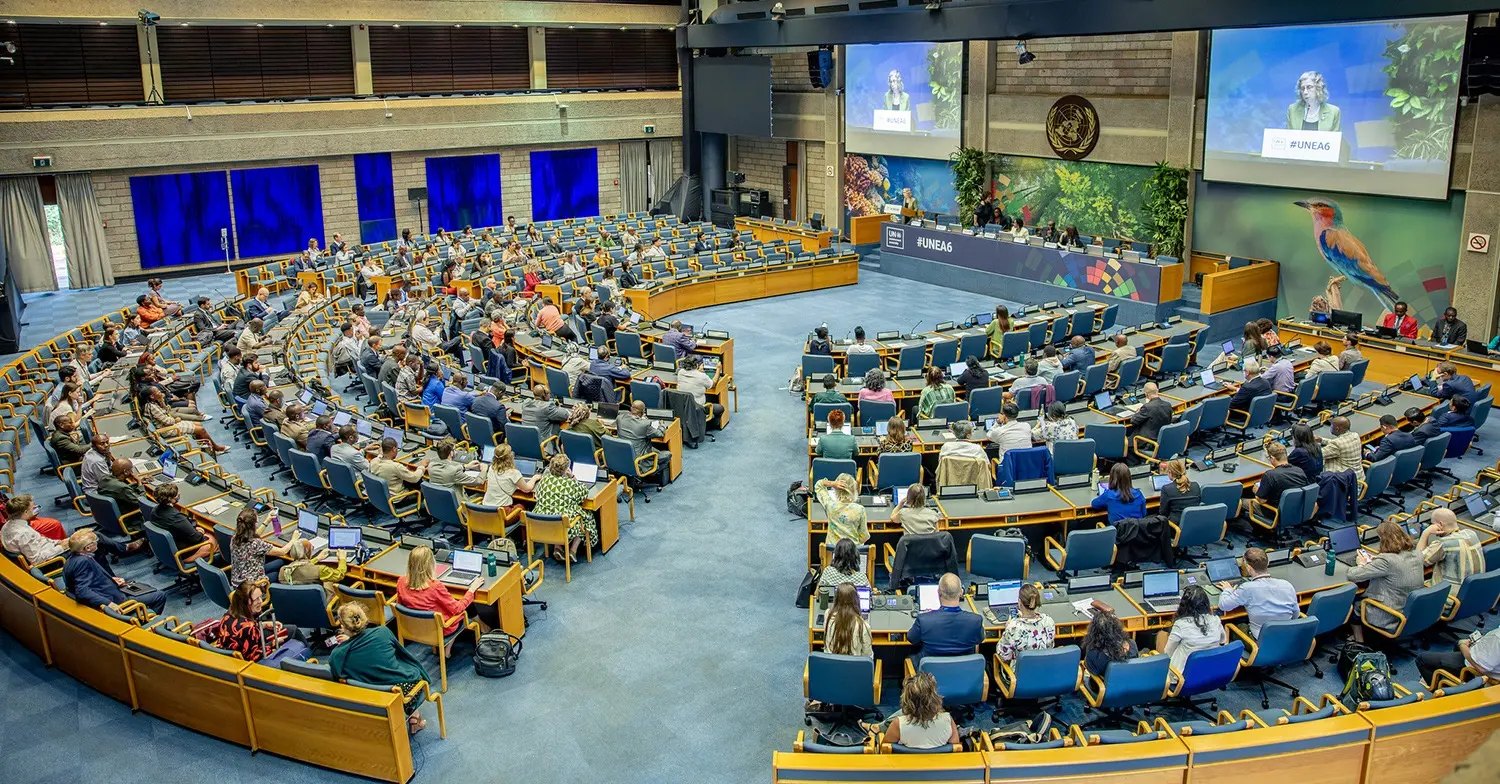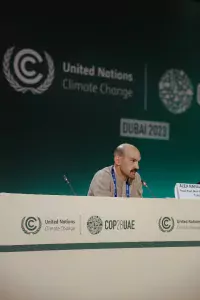
By Arnold Ageta
After a long battle over the final text, climate negotiations came to an end at COP28, with a weak outcome on transitioning away from fossil fuels – the main cause of the climate crisis and the biggest issue of this COP.
Due to the barriers to negotiating and financing a fossil fuel phase out within the UNFCCC, a strong movement has gained momentum, with 12 nations calling for the negotiation of a Fossil Fuel Non-Proliferation Treaty, 4 of them endorsing the proposal here in Dubai – Palau, Colombia, Samoa and Nauru.
The Executive Director of the Fossil Fuel Non-Proliferation Treaty, Alex Rafalowicz, in his statement said, those most responsible for the climate crisis did not bring finance, technology, or actions to start phasing out fossil fuels, instead they brought hollow hypocrisy that poisoned the talks just as they are poisoning life on Earth.
‘‘Having the words ‘fossil fuels’ in the text is an important political signal, but it’s a far cry from the ‘historic’ outcome we were all calling for – it is the weakest we could have gotten, it has all the intentionally vague words planted to deceive us, and it is still very reliant on all the unproven technologies we must avoid,’’ regretted Alex.
He observed that vested interests of a few did everything they could to drown out the voices of people and science.
According to OPEC, he said, this would be an irreversible tipping point, and it will be.
He termed the lobbyists of fossil fuel as merchants of death, saying their days are numbered.
‘‘The record number of fossil fuel lobbyists at this COP was proof that the industry is desperate to defend their interests at the expense of life,’’ Alex expressed his concern.
While the UNFCCC will continue to be a critical forum to negotiate international climate policy, this COP outcome, according to FFNPT, is a clear sign that this process is not fit for the purpose of managing and financing an equitable transition away from oil, gas and coal, and that it must be urgently complemented by a new international mechanism explicitly focused on phasing out fossil fuels – a Fossil Fuel Treaty.
“For 30 years this process has failed to face up to the core driver of the climate crisis, today that changes, but only because the people on the front lines held the line for the rest of humanity,’’ said Alex. ‘‘There was a significant number of governments pushing for science-based fossil fuel phase out and for a true just transition package with finance and equity at the core.’’
He has expressed his fears that these countries could not breakthrough because of the consensus-based process demonstrates the inability of the UNFCCC to really deal with the urgency and the source of this crisis.
‘‘That is why we need a complementary, non-consensus based process like a Fossil Fuel Treaty, that allows those countries to come together to negotiate and to actually accelerate the transition away from fossil fuels signaled in this agreement,” highlighted Alex.
A growing bloc formed by Antigua & Barbuda, Colombia, Fiji, Nauru, Niue, Palau, Samoa, Solomon Islands, Timor-Leste, Tonga, Tuvalu and Vanuatu is spearheading an effort to secure a mandate to negotiate a new international mechanism to manage a phase out of fossil fuels, and finance a just and equitable global transition away from the deadly grip of oil, gas and coal.
Auimatagi Joe Moeono-Kolio, Chief Advisor (Pacific) of the Fossil Fuel Non-Proliferation Treaty Initiative on his part argues that after 30 years of climate talks, the COP28 outcome finally mentioned fossil fuels but fell short of setting a clear plan to phase them out.
‘‘The bar is so low now that we are expected to applaud incremental gains from this low-altitude flying, low-ambition COP Presidency,’’ said Auimatagi. ‘‘Small Island States from the Pacific and across the world pushed relentlessly for a science-based fossil fuel phase-out and a genuine just transition package with finance and equity at its core.
The fact that they could not break through the consensus-based framework of the UNFCCC, he emphasizes the need for a new process that can complement this process, a Fossil Fuel Non-Proliferation Treaty.
‘‘It will allow nations committed to real climate action to negotiate and implement the transition away from fossil fuels in a way that is not just far, but also fair,” he concluded.
Along with the governments, the Fossil Fuel Non-Proliferation Treaty proposal is also supported by the World Health Organization, the European Parliament, 101 Nobel Laureates, 600+ parliamentarians in 83 countries, 2,100 civil society organizations, 3,000 scientists and academics and over 90 cities and subnational governments, including most recently the State of California, the fifth largest economy in the world, and 9 Peruvian Indigenous Nations.
Addressing the delegates, Mitzi Jonelle Tan from Fridays for Future MAPA said, “We refuse to give up. There is hope, and with the COP process lagging behind on fossil fuels, we turn to the Fossil Fuel Non-Proliferation Treaty as a complement to the Paris Agreement to ensure and fast track a global just transition that leaves no one behind.”
In his speech, President of Colombia, Gustavo Petro, at the High-Level Party Event organized by the Fossil Fuel Non-Proliferation Treaty Initiative, announced his country’s endorsement of non-fossil fuel.
President Gustavo supports endorsing a treaty that implies zero new exploration projects worldwide, despite the fact that Colombia fully depends on oil and coal. This move will be considered economic suicide for Colombia, but he is determined to put an end to fossil fuels.
‘‘This is not economic suicide. We are talking here about an ‘omnicide’, the risk of extinction of life on the planet. Here we are avoiding ‘omnicide’ on planet Earth,’’ he implored the world.
He added that the world is currently experiencing a significant confrontation between fossil capital and human life, emphasizing the need for individuals to take a stand.
‘‘Any human being knows that we must choose life. I have no doubt which position to take: between fossil capital and life, we choose the side of life,” he concluded.
It is evident that small states are taking up the mantle to fight for the planet as big nations consider science-based fossil fuel to convince the world.
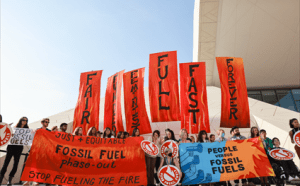
Ralph Regenvanu, Minister of Climate Change, Energy, Environment, Meteorology, Geohazards and Disaster Management of Vanuatu on his part argued that there are simply far more fossil fuels in the Earth’s crust than the world can ever burn.
‘‘And as we deploy renewable energy at a speed and intensity that allows us to supply clean energy for all, it would be unacceptable for fossil fuel producers to respond by continuing to increase production to defend their market share,’’ Ralph said. ‘’This Treaty provides a means to enable international cooperation to phase out fossil fuels.”
During a High-Level Party Event at COP28, Dr. Tedros Adhanom Ghebreyesus, the Director-General of the WHO, joined these countries, highlighting that the destructive impacts of air pollution stemming from fossil fuel emissions lead to the loss of over seven million lives annually.
‘‘In full support of your call for a fossil fuel treaty, the World Health Organization stands united with you. Various organizations advocating for robust climate action including the phasing out of the use of fossil fuels,’’ said Dr. Tedros.
He confirmed his support saying the objectives outlined in the proposed treaty are clear, evidence based and equitable.
‘‘A rapid phase out of fossil fuels is imperative to safeguard island nations, protect the integrity of our planet, and protect the health and well-being of all,” Dr. Tedros declared.

